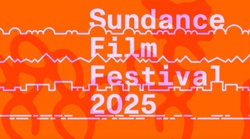Review: Trainspotting 2- “A whole new ride”
To many people, the announcement of a sequel to a great film leads to exciting curiosity, to others it’s like getting hit by “bad news” at the doctor. After all, experience keeps showing us that the more logical response is the latter one (think Jurassic Park, Matrix Reloaded, and though I wouldn’t call it a great film, even the sequels to The Hangover made the original lose all its substance). Which is why when we heard that production had started for Trainspotting 2, behind our inevitable excitement, was a lingering skepticism that kept us wondering whether our filmic nostalgia and constant desire to re-live the past, was worth possibly tainting the Trainspotting name, irreparably. Then again, films such as Linklater’s Before Sunset (2004), or more obvious ones like Coppolla’s Godfather II (1974) kept our hope going, as they are tangible evidence that it is possible to create a sequel that not only lives up to the original, but offers new, worthy material that further develops the characters and re-ignites the fire that its predecessor started. But the film is out, so as we get comfortable in our seats, ready to watch Danny Boyle’s second attempt at a sequel (his first attempt was 28 Weeks Later, in 2007) popcorn in hand; we don’t know what to expect, so some expect everything while others expect nothing.
Since the release of Trainspotting, 20 years ago, not only have the actors developed and matured (I think we were all interested in seeing how a now-45-year-old Ewan McGregor would fare as the beloved Renton), but more importantly, Danny Boyle’s growth as a director is remarkable, from his second breakthrough film 28 Days Later (2004) to 2008’s Oscar winning Slumdog Millionaire, an absolute masterpiece that cemented him as one of the great directors of modern cinema. Followed by the release of 127 Hours (2010) and Steve Jobs (2015) the British director proved that he can deliver excellent films consistently, his narrative prowess ever-improving.
As for Trainspotting 2, also known as T2, Boyle decided to go back to what made him famous, but taking a new, more sophisticated approach to it. Sure, the fast paced editing, quirky camera angles, and clever visual effects that made the first film a cult-classic, are all present in T2, but there’s an unmistakable finesse in the way that every shot is composed and every move executed, that shows Boyle’s evolution as a director. His different treatment of the narrative is most evident in the film’s cinematography- it no longer feels like a claustrophobic confinement inside the mind of a heroin addict, by replacing indoor shots with quite spectacular shots of Edinburgh, one of the most beautiful and underrated cities in Europe, we get the sense that the characters have broken free from that life, and are finally getting some fresh air. Boyle changed cinematographer for T2, Anthony Dod Mantle who does an equally, if not more impressive job than Trainspotting cinematographer Brian Tufano in breaking away from the conventional shots of Hollywood and creating much more visually engaging, even “revolutionary” shots and camera movements. There is a noticeable emphasis on artificial lighting, the use of colours to convey meaning and give the film an artistic approach that can be appreciated more than in Trainspotting. Boyle wanted to show how making Trainspotting in your second feature film, isn’t the same as making it after becoming a household name with plenty of awards and accolades to boast.
Ewan Bremner and Robert Carlyle do a fantastic job at reviving Spud and Begbie with such charisma and fluidity, while McGregor and Johnny Lee Miller slightly struggled at times to maintain the essence of the character without it feeling too forced- but we choose to ignore it. There’s a couple of absolutely brilliant scenes such as a bar fight between Renton and Sickboy, a brilliantly choreographed scene that reminds us of the versatility of Boyle. Nonetheless, as much as there is to praise about T2’s technical execution, the film lacks the depth and personality that Trainspotting had; it was an unusual, convention-breaking, brash, revolutionary film that centered on the lives of heroin addicts. Part of what made it so special was the controversy it generated, some people considered it pro-drug, some anti-drug, but the fact of the matter is that the film’s original antagonist was the heroin and the addiction itself, whereas in T2, the portrayal of Begbie as a clear-cut, comic-bookish villain hell bent on revenge, gives the narrative a much more structured approach which takes away much of what the film was about.
Trainspotting 2 is definitely an enjoyable ride worthy of the Boyle name, but it is at times chaotic in its struggle to define itself as a tribute, a spinoff, or a sequel, to Trainspotting. Although this might have been the director’s intention, it just doesn’t seem to be working for Boyle, who seems to confuse a reference to the first film, with a recycled, iconic line or scene, which just doesn’t deliver the same kick the second time around. There are very clever ones, such as Begbie’s son studying hotel management, but most of them give the impression that the screenplay was built around these pre-selected “references” instead of writing the story and then thinking about which references would fit in the new narrative. The most ironic thing about it all is that Trainspotting 2 is such a good film in itself, that it could have been a successful title regardless of its name. With T2 Boyle showed us that he still has a lot to offer as a filmmaker. He’s a force to be reckoned with, and continues to develop as a prolific storyteller; frankly, his films are a visual treat.












